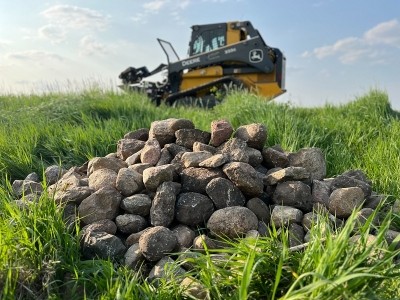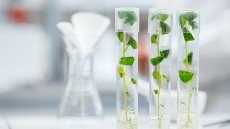£3.3m project aims to ‘eliminate dependence’ on nitrogen fertilisers in UK
Scientists are aiming to unlock the potential of clover and other legumes to reduce the use of fertiliser and emissions from livestock agriculture, thanks to a £3.3 million UK government grant.
To achieve the government net zero targets by 2050, greenhouse gas emissions from livestock farming need to fall by 78% by 2035. At the same time, the world’s population is forecast to reach 10 billion people by 2050, with demand for food predicted to rise by 70%.
UK sheep and cattle production relies predominately on grass-based pastures which use chemical nitrogen fertiliser to grow the grass used as feed for these livestock. Currently the process of manufacturing one tonne of chemical nitrogen fertiliser can release up to eight tonnes of carbon dioxide.
Clovers and other legumes can ‘fix’ their own nitrogen from the atmosphere and can share this with grasses growing in the same field.
As part of a new UK government funded project in partnership with industry, scientists at IBERS, a research institute at Aberystwyth University, will look at the ability of red and white clover and another legume, Birdsfoot Trefoil, to improve the productivity of livestock whilst reducing reliance on chemical nitrogen fertiliser.
New legume varieties have been developed by Germinal and Aberystwyth University that are more resilient to grazing by cattle and sheep and extreme weather, due to climate change. Birdsfoot trefoil contains compounds called tannins, which can reduce methane emissions by cattle and sheep.
Researchers will be working with commercial farmers in the ‘NUE-Leg’ project to maximise its benefits. The project will look at how to best take advantage of the natural ability of legumes to fix nitrogen, reducing reliance on chemical nitrogen fertilisers.
The research will include on-farm trials to identify how to support farmers to reach net zero targets.
Dr Christina Marley from IBERS at Aberystwyth University said:
“This project could really help cut the use of fertilisers and agricultural emissions. The aim is to make the most of the ability of clovers and other legumes to increase nitrogen levels naturally in UK grasslands. We are really looking forward to working together with livestock farmers to understand how best to use these new legumes within real farming systems. There is so much potential in these adaptations to some of our native plants, as we, as a society, undertake a wider collective effort to tackle climate change”.

































